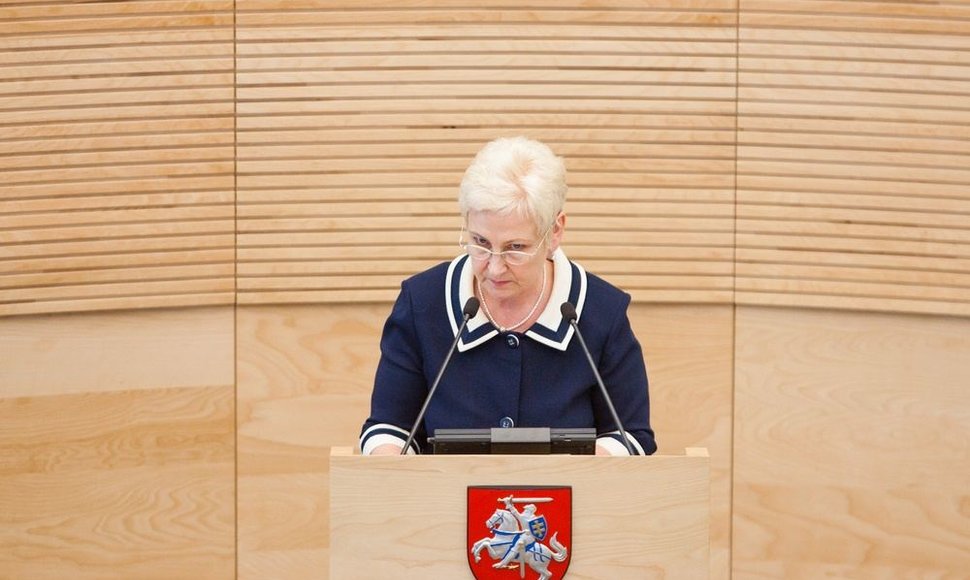In her words, the monitoring activities could include diplomats, politicians, and representatives of the public.
At a meeting with heads of Lithuania's diplomatic representations, Degutienė said it was crucial to seek implementation of provisions contained in the 2012-2016 defense policy agreement.
"This is why I asked chairmen of the parliamentary committees of National Security and Defense and Foreign Affairs to look into the best practices of NATO member-states and develop a monitoring framework, which would not only involve politicians, diplomats, and defense experts but also representatives of the academic world, political reviewers, and members of public associations," the parliamentary speaker said in a press release.
According to the document signed in May, the country's parties commit themselves "to gradually increasing the money earmarked for the national defense system with the long-term goal of bringing the spending to 2 percent of the gross domestic product (GDP)."
Degutienė said Lithuania's upcoming EU presidency would be a test of Lithuania's administrative and organizational capacities, as well as an opportunity to gain stronger rounds in EU institutions and become a fully-fledged member of the communities, seek implementation of Lithuanian priorities in connection to European policies and consider EU future.
Speaking about adoption of laws needed for Lithuania's energy security, the parliamentary speaker said they laid firm grounds for the energy independence strategy.
In the framework of the annual congress in Vilnius, the ambassadors on Friday visited the parliament and met with Degutiene and members of parliamentary committees of Foreign Affairs, European Affairs and National Security and Defense.
Started on Monday, the congress focused on Lithuania's readiness for EU presidency. The ambassadors attended target training and seminars about chairmanship priorities and principles of organization of meetings and communication.
Earlier this week, they had meetings with President Dalia Grybauskaite and Prime Minister Andrius Kubilius.
Lithuania will hold EU presidency in the second half of 2013.












